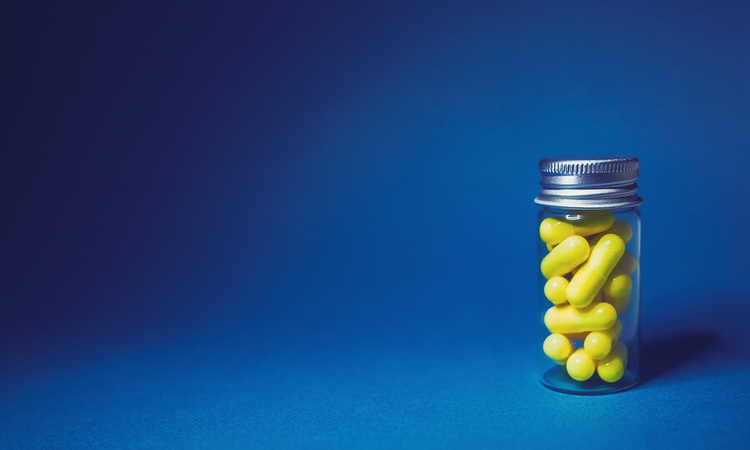
Gabapentin (brand name Neurontin) is a prescription medication commonly prescribed for the treatment of seizures, neuropathic pain, and restless leg syndrome.
Gabapentin is not currently scheduled by the Drug Enforcement Agency as a controlled substance because research has historically shown that it has little potential for abuse or dependence. Although gabapentin is considered to be a relatively safe drug, especially when used as directed, over the years, research has raised questions regarding the drug safety and potential for addiction.
Gabapentin Abuse
According to research presented at the 2015 American Academy of Addiction Psychiatry (AAAP) 26th Annual Meeting, gabapentin abuse is an increasing concern. This concern is primarily due to the fact that the drug has become more and more available, as many doctors consider it a safer alternative to other drugs formerly used to treat some of these conditions, such as benzodiazepines or opioids.
While this belief is, in general, correct, some people who use Neurontin have described experiencing feelings of well-being, which could certainly be appealing to would-be recreational users. Others say that gabapentin enhances the effects of other drugs, including prescription painkillers and alcohol.
According to a report published in Pharmacy Times (2015), 57 million Americans had been prescribed gabapentin. Still, other reports reveal that there are also many people abusing Neurontin illicitly without a prescription. A report in the journal European Addiction Research found that 38% of people in the six substance abuse facilities they studied admitted to misusing either gabapentin or pregabalin (a similar medication) with methadone to experience a high.
Also, in 2004, a study that surveyed patients in a Florida correctional facility found that less than 20 percent of the gabapentin prescriptions given out were in the hands of people who had actually been prescribed the drug. Five of the inmates reported crushing the pills and snorting them, and four of the five reporting experiencing a high similar to cocaine, and all had histories of cocaine abuse.
Risks and Symptoms of Abuse
Gabapentin essentially mimics the effects of gamma-aminobutyric acid (GABA) in the body, thereby increasing the available amount of GABA to the brain, which in turn, induces relaxing feelings of well-being and anticonvulsant effects. Like any other drug, gabapentin can have adverse side effects, including the following:
- Weight gain
- Dizziness and headaches
- Fever
- Impaired memory
- Double vision
- Muscle aches and pains
- Tremors
- Nausea
- Impaired motor function
In some cases, the side effects of gabapentin abuse can be even more significant. The Food and Drug Administration (FDA) warns that any anticonvulsant, including gabapentin, can lead to an increase in suicidal thoughts. Outside of legitimate therapeutic reasons, in most cases, the mild “reward” of using gabapentin does not outweigh the risks associated with abuse.

How Is Gabapentin Addictive?
Whenever a new medication is introduced into the prescription drug market, there are always concerns regarding the drug’s potential for addiction. To determine whether a drug may have such a potential, researchers examine how the drug affects specific nerve receptors in the brain. If it activates these receptors and results in compulsive, drug-seeking behavior, the drug is considered to be addictive. If it does not, it is deemed nonaddictive.
Although gabapentin has been found nonaddictive according to scientific research, anecdotal evidence has raised concern. For example, one report in the Journal of Psychiatric Practice highlights a case of gabapentin abuse, in which the person suffered from “toxic delirium, intense cravings, and a prolonged post-withdrawal” similar to withdrawal from benzodiazepines. A severe withdrawal period can drive a person to continue using gabapentin even if they attempt to quit, a result that indicates drug dependence has indeed developed.
Gabapentin withdrawal can be highly unpleasant, and symptoms may include nausea and fatigue. If people are using the drug for seizure control, they can expect to encounter an increase in seizure activity if they discontinue use. Most patients choose to taper off the drug under the care of a medical professional to mitigate the severity of withdrawal symptoms.
It’s also important to note that any substance has some potential for psychological or emotional dependence, even if a true chemical addiction is not present. Issues that can manifest as a result of psychological dependence may include drug cravings, anxiety, agitation, and depression associated with the use of the drug of choice.
Treatment for Gabapentin Abuse and Addiction
If you or someone you love is struggling gabapentin abuse, it is vital to seek professional help. If a person is abusing gabapentin, it is very possible that they are using it with other drugs or alcohol, which is another issue that deserves to be addressed in its own right.
Recovery By The Sea is a specialized addiction treatment center that offers integrated, evidence-based approaches that include psychotherapy, psychoeducation, counseling, peer support, medication-assisted therapy, aftercare planning, and more.
If you or someone you know needs help overcoming substance abuse or addiction, contact us today. Discover how we help people break free from the vicious cycle of addiction for life!
Related: Snorting Hydrocodone